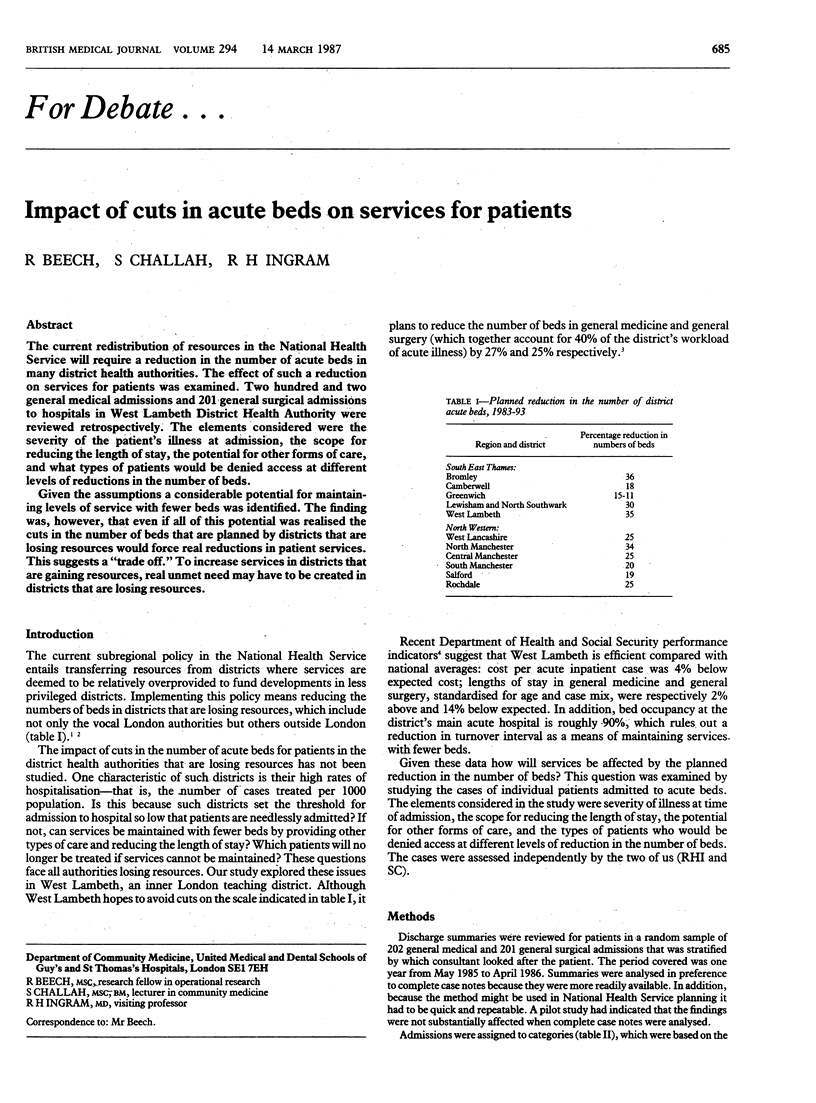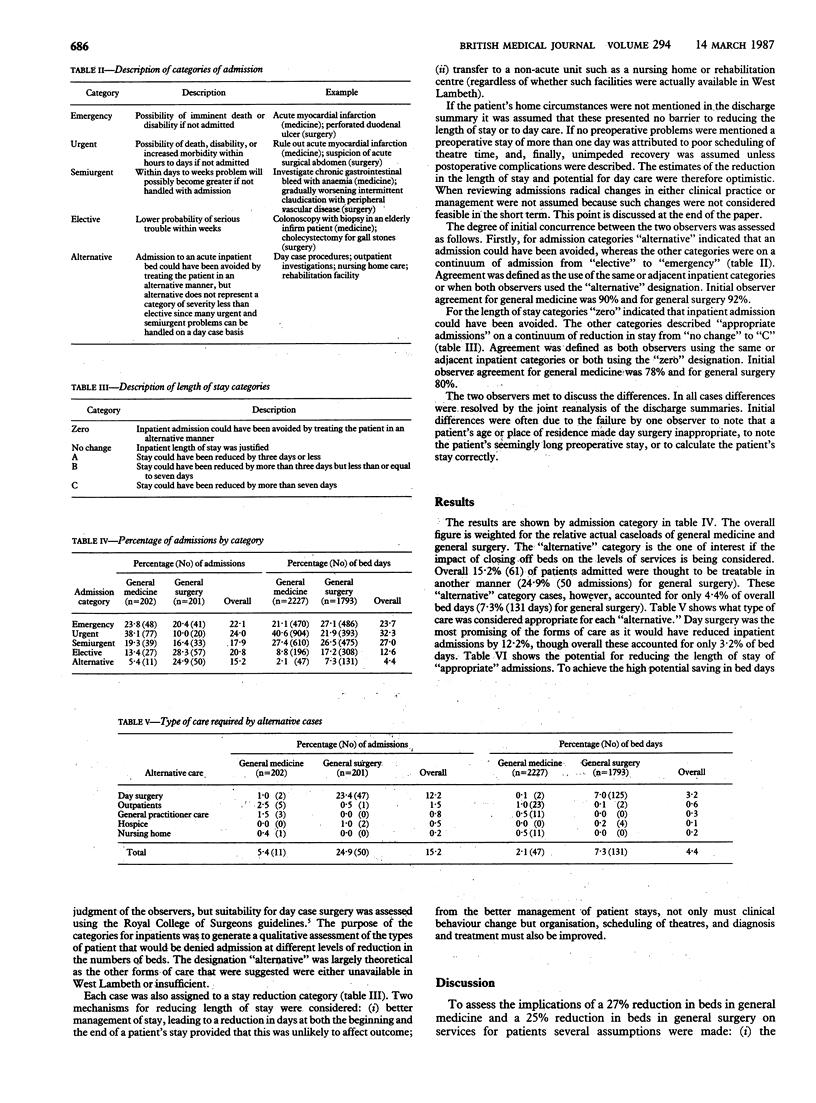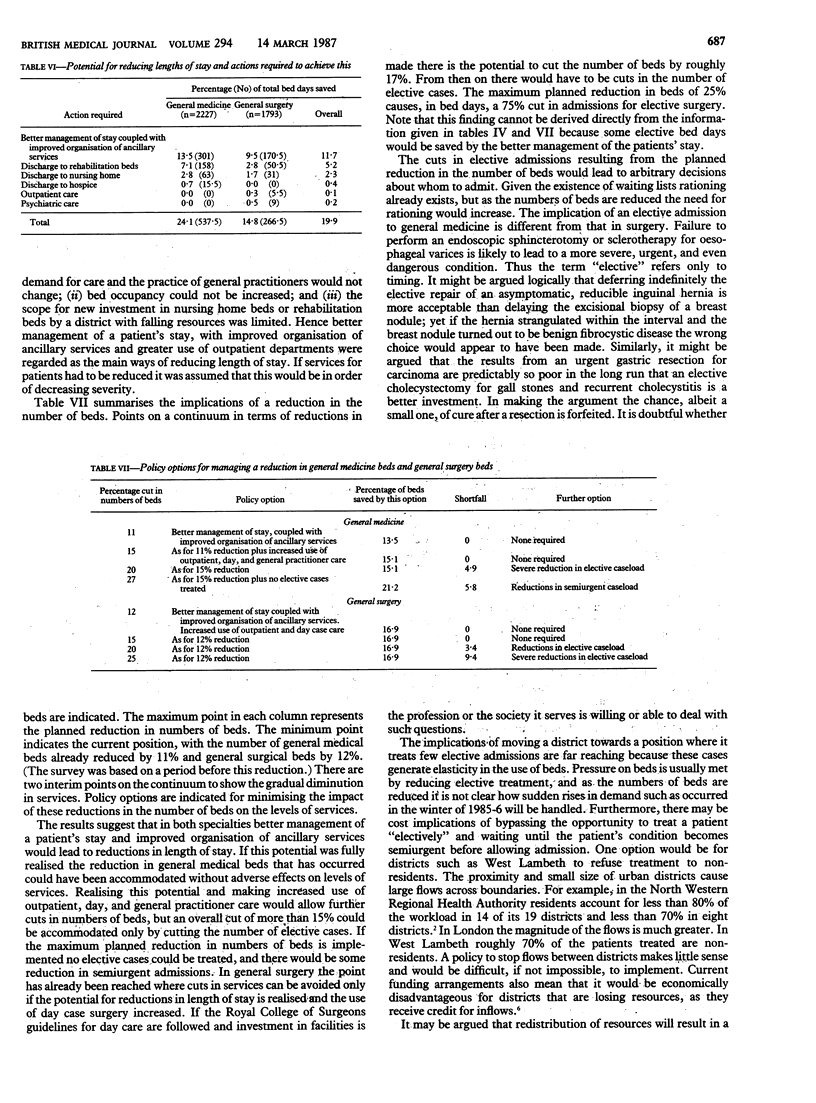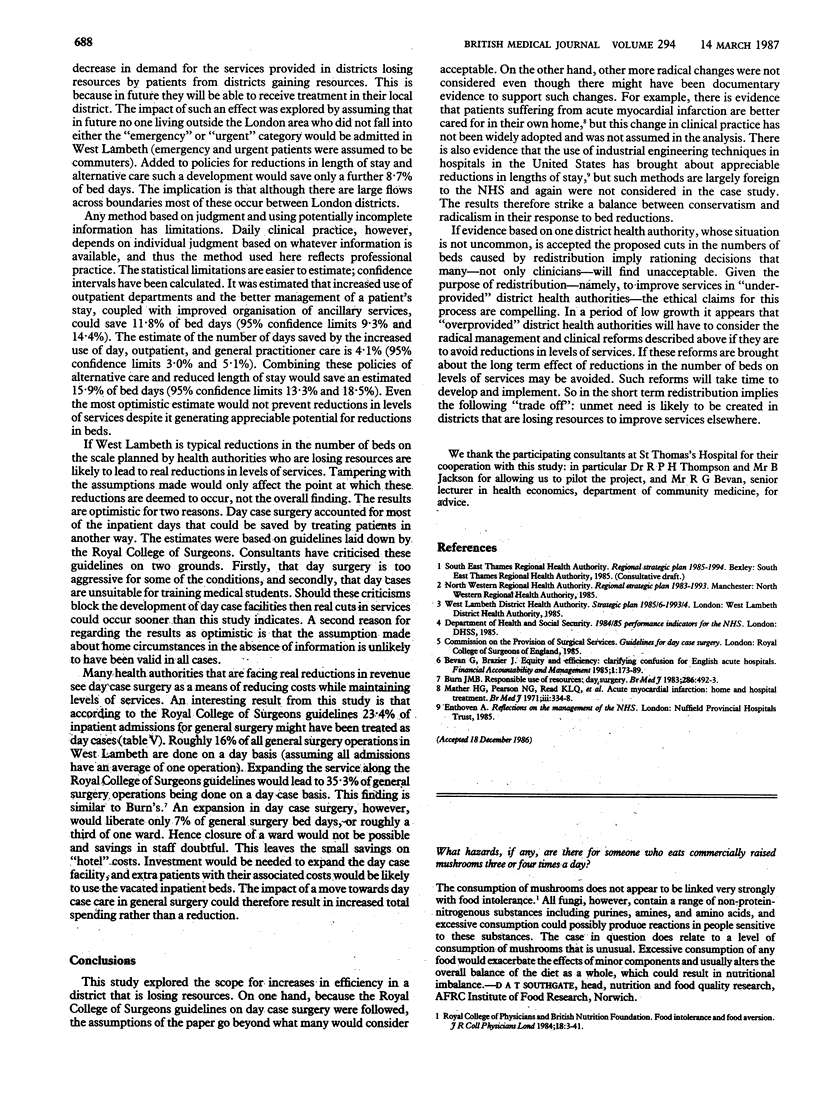Abstract
The current redistribution of resources in the National Health Service will require a reduction in the number of acute beds in many district health authorities. The effect of such a reduction on services for patients was examined. Two hundred and two general medical admissions and 201 general surgical admissions to hospitals in West Lambeth District Health Authority were reviewed retrospectively. The elements considered were the severity of the patient's illness at admission, the scope for reducing the length of stay, the potential for other forms of care, and what types of patients would be denied access at different levels of reductions in the number of beds. Given the assumptions a considerable potential for maintaining levels of service with fewer beds was identified. The finding was, however, that even if all of this potential was realised the cuts in the number of beds that are planned by districts that are losing resources would force real reductions in patient services. This suggests a "trade off." To increase services in districts that are gaining resources, real unmet need may have to be created in districts that are losing resources.
Full text
PDF



Selected References
These references are in PubMed. This may not be the complete list of references from this article.
- Burn J. M. Responsible use of resources: day surgery. Br Med J (Clin Res Ed) 1983 Feb 5;286(6363):492–493. doi: 10.1136/bmj.286.6363.492. [DOI] [PMC free article] [PubMed] [Google Scholar]
- Mather H. G., Pearson N. G., Read K. L., Shaw D. B., Steed G. R., Thorne M. G., Jones S., Guerrier C. J., Eraut C. D., McHugh P. M. Acute myocardial infarction: home and hospital treatment. Br Med J. 1971 Aug 7;3(5770):334–338. doi: 10.1136/bmj.3.5770.334. [DOI] [PMC free article] [PubMed] [Google Scholar]


